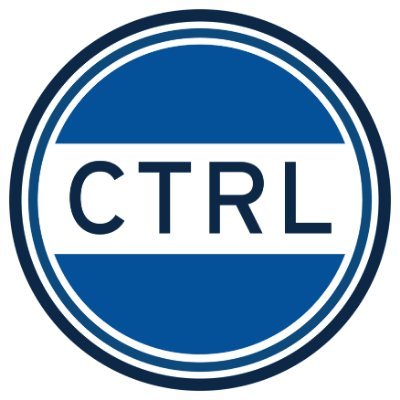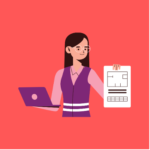“It’s not us versus them”: The Importance of Partnering with Students
Introduction by Gavin Frome and Hannah Jardine, CTRL Student Partner Team
Partnership around teaching and learning between faculty/staff and students has the potential to promote equity, justice, and social change, foster culturally responsive practice, and cultivate respect and belonging for students (see resources listed below). There is significant research on partnership work that demonstrates students and faculty/staff in the partnership, students in the courses and programs served by the partnership, campus administrators, and campus community all gain engagement, awareness, and enhancement because of these types of initiatives. Everyone benefits when we narrow the divide between faculty (or staff/administration) and students.
We have been working in partnership, as a team of primarily undergraduate students, one graduate student, and full-time staff, to bring student voice and perspective to the conversation about teaching and learning at American University. Every week we have incredibly rich conversations about teaching and learning, the results of which have made it into many of CTRL’s workshops, programming, and larger messages to campus. The CTRL Student Partners also complete personal, self-driven projects, resulting in online resources and panel sessions at larger CTRL events.
Below, each Student Partner shares their personal insights into what it means to them for instructors to partner with students and what they hope for the broader AU community in terms of a shared vision for student voice and co-creation as the norm for teaching and learning.
Alli Sattler
“As all students learn and think differently, it has become increasingly clear to me how the ‘one size fits all’ model of education frequently excludes groups of students from learning effectively”
A key part of being a CTRL Student Partner is having the potential to make change on campus and beyond. As Student Partners, we are given the freedom and opportunity to research what interests us and what we are passionate about and create work that is both meaningful to us as well as focus on issues that are most relevant to today’s students. As society continues to grow and develop, so must our educational practices.
Student Partners have the ability to provide insight into educational practices utilized on campus in order to promote equity and inclusivity throughout campus. Our goal is to promote equity and inclusivity within educational systems, and partnering with students provides a tangible way for faculty to work in collaboration with students to promote these ideals. Faculty should partner with their students to better understand whether their practices are effective and equitable.
As I am both a Student Partner and someone majoring in secondary education, I am constantly reflecting on the student and faculty perspectives simultaneously. In doing so, I have become more aware of not only what practices tend to be most effective within a classroom but what best supports students. As all students learn and think differently, it has become increasingly clear to me how the “one size fits all” model of education frequently excludes groups of students from learning effectively.
Through the work that I have done with CTRL, I hope that I make an impact on both faculty’s perspectives and students’ learning. As I am a math and secondary education major, I have primarily focused on the intersection of math education and inclusivity, as math tends to be a rather exclusive field. Further, I hope to make a profound impact on STEM education, as there are so many systemic issues that continue to persist on campus and beyond. I believe that the Student Partners program can be empowering for students on campus by providing a voice to those who may feel voiceless. Further, this program makes clear to students that it is possible to collaborate with faculty and promote change on campus.
Kimiya Parker-Hill
” My hope for AU is that we can appreciate and value student voices as tools for maintaining inclusive excellence inside our classrooms.”
As a CTRL student partner, it is my hope that American University can create cohesive learning environments where we focus on both students and educators. A place I’d hope to see AU start at is incorporating a student-centered curriculum while also providing space for professors to receive constructive criticism and praise. My hope for AU is that we can appreciate and value student voices as tools for maintaining inclusive excellence inside our classrooms.
As a student of color, I appreciate the ability to have my voice heard and hope that the CTRL Student Partner program can provide opportunities for more students to share their thoughts and feelings. Learning does not stop once students leave the classroom and I think it is important that we begin incorporating the “outside” world into every AU classroom. I hope students continue to see themselves more in the classrooms they are learning in, whether it be in the authors of our readings, class examples, or guest speakers.
My vision for student voice and co-creation on campus is that students and educators can collaborate on creating a classroom where they both can thrive. It is important for both students and educators to be accountable for their learning. Professors should be the lead learners in their classrooms because it allows for adaptations that may be beneficial for each set of students. Students can share ideas and experiences that can support the learning environment. If they are not provided opportunities to speak out students’ voices get lost.
Marie Dioneda
“The world is shifting, people are changing, and so are students’ ideas of education.”
As a Student Partner, I get to witness this shift of ideas first-hand in my research, conversations with my peers and professors, and in collaboration with other Student Partners. Not only are these ideas incredibly fascinating, but they’re also incredibly important because they reflect what we, as a community, want our goals for education to be. It’s no longer about getting the best grades or the ability to memorize information and regurgitate it; it’s about the ability to think critically, to think outside of what we know and use it in real-life applications.
In the future, I hope that American University, as an institution, will begin encouraging these types of conversations within classrooms so that we can all have a more well-rounded perspective on what it means to be students and professors at this school. But for right now, I hope that the work I’m doing with CTRL will help faculty (and, by proxy, their students) re-frame their beliefs about the education system.
At the end of the day, we’re humans first. Regardless of age, race, gender identity, or profession, there is always going to be someone who knows something that we don’t, and we learn more—as members of American University, but more importantly, as individuals of the world—when we work in collaboration together.
Nathaniel Smith
” We hope to challenge, change, and implement new modern higher education strategies for both students and professors to work towards the same goal.”
To me, being a student partner means that I have the unique ability to understand and advocate for both the student and professor perspectives. Meeting weekly as a cohort alongside CTRL staff creates a dynamic and avenue for my voice to not only being heard but used. My goal and hope are for AU to create a learning environment that at its core improves the learning experience and cultivates students’ thoughts and opinions.
I realize in having been a part of CTRL for the past two years; as well as interviewing both students and professors, that it’s critical for there to be avenues of communication from the student to professor and vice versa. Inclusivity can be drastically improved by creating an atmosphere of feedback and communication. Without this line of communication, there is no room for improvement or conversation, which furthers disconnect and leads to discontentment.
It is my opinion that AU and any college’s mission is to shape and mold student minds in and outside the classroom. AU is positioned perfectly, with their average class sizes to provide a student experience that is founded in discussion and engaging with concepts in the classroom instead of just lecturing. It’s astounding to me that some AU classes still follow and believe teaching in one mode (lecturing) will help all students engage with a concept.
As a CTRL partner, we have discussed the fact that implementing technology in syllabuses, addressing and creating avenues for communication, and providing access to information through varying modes (i.e., podcast, recorded lectures, and videos) is the most effective and modern way to ensure students truly retain, conceptualize, and can use the information. Far too often, professors and students fall to the belief that learning is a means to test and that they should just teach it and move on. As a student partner with CTRL, we hope to challenge, change, and implement new modern higher education strategies for both students and professors to work towards the same goal.
Qudsia Saeed
“By creating an inclusive academic space, we can empower students to be active agents of change in their academic journey and society as a whole.”
As a CTRL Student Partner, I have had the privilege of making a meaningful and positive impact on the teaching and learning experience at AU. My contributions to this role have allowed me to share my unique perspectives on academic administration and curriculum development and gain a more profound understanding of the educational environment.
Through this experience, I have identified and addressed various challenges that students face in their academic journey, from access to resources to the inclusivity of the educational space. I have worked towards creating a more inclusive academic space where every student feels welcome, empowered, and valued.
Collaborating with fellow students at AU has been an enriching experience that has challenged traditional boundaries between educators and learners. This partnership has been instrumental in creating an educational community where everyone’s voice is heard and valued. It fosters inclusivity, equity, and cultural responsiveness and democratizes the educational process, allowing for the holistic development of both students and educators.
My vision for AU is to create an academic community where student voice and co-creation are fundamental. To achieve this, we must address the barriers to inclusive excellence, such as implicit biases and systemic structures limiting diverse representation and participation. My goal is to see AU evolve into a space where every student feels valued and empowered, contributing to a richer, more inclusive educational experience for all. By creating an inclusive academic space, we can empower students to be active agents of change in their academic journey and society as a whole.
Reba Mathews
“Inclusivity and efforts of accessibility must be ongoing projects that we must be willing to commit ourselves to if we are to benefit from the claims of being a diverse and progressive institution.”
I have had the privilege of working as a student partner with CTRL for the past two semesters. I was able to fully nerd out on education research and enter a space where my peers and mentors shared these same passions. As a student partner I finally felt validated for my concerns and was provided with the space to pursue projects of educational advocacy.
Through meaningful conversations with my peers and under the guidance of my mentors who were committed to helping me create projects I was passionate about; I was finally engaging in creating resources that relied on knowledge of my student voice. I am now further invigorated by the persistent support of my CTRL family, and I am forever grateful for the experience. It was truly an enlightening one as we created a collaborative space where I learned from my peers and my thoughts were valued by my supervisors.
The student partners program is indicative of inclusive and accessible praxis as it aims to not only foster a healthy creative work environment but ensures students that their experiences should be and are heard. It also further aims to promote authentic endeavors of improving our education system and experience at AU for both students and faculty.


